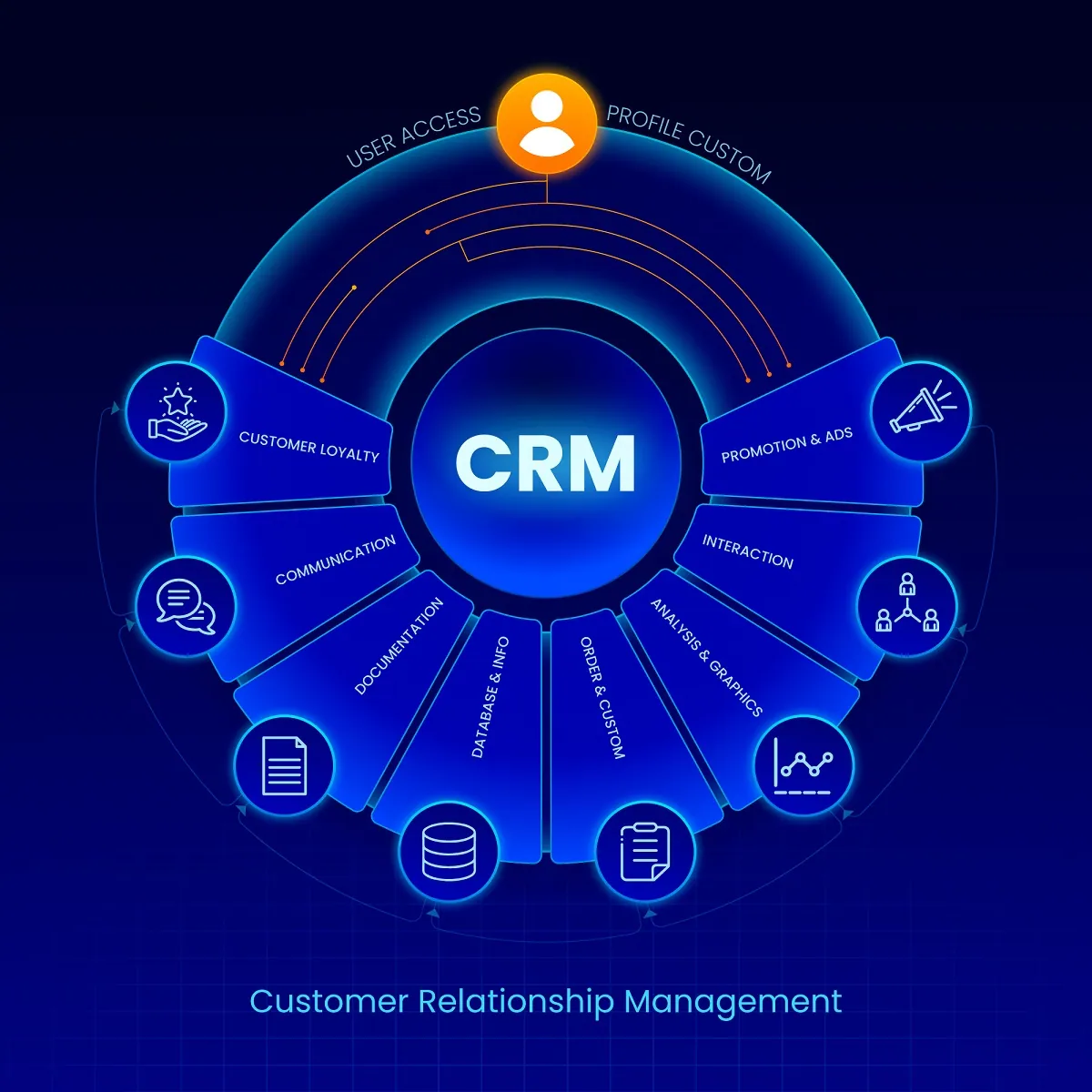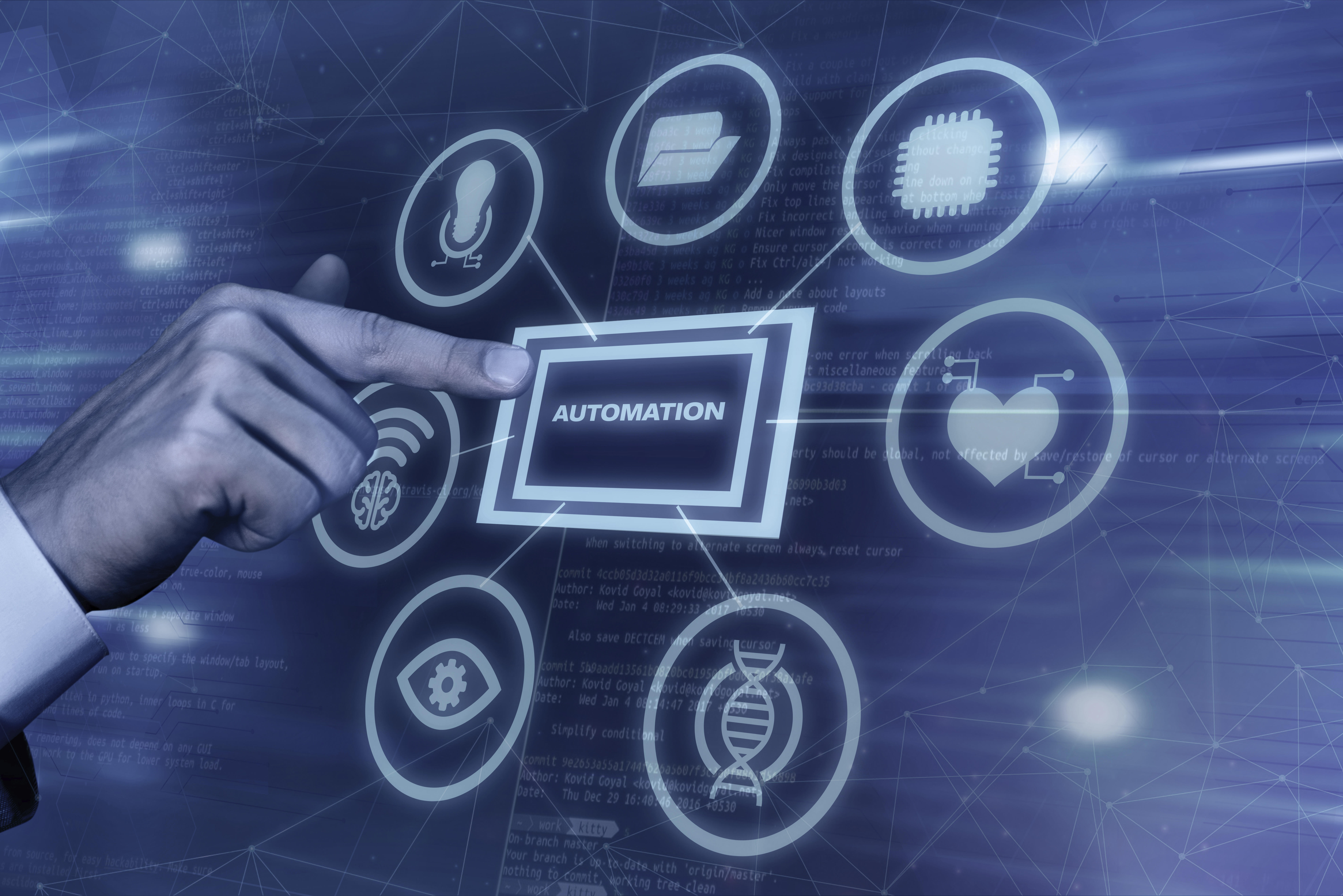Top Tools and Platforms for CRM and AI: A Buyer’s Guide
What is CRM (Customer Relationship Management)?
CRM stands for Customer Relationship Management. It refers to the technology and strategies businesses use to manage interactions with current and potential customers. A CRM system helps companies organize customer data, track communications, automate sales processes, and provide better customer service—all in one place. The ultimate goal is to build stronger relationships and drive business growth.
What is Artificial Intelligence (AI)?
Artificial Intelligence, or AI, involves creating systems that can mimic human intelligence. These systems can learn from data, recognize patterns, make decisions, and even interact with people. From chatbots that answer questions to algorithms that predict customer behaviour, AI is transforming how businesses operate and serve their customers.
Why is AI Transforming CRM Tools?
When AI is integrated into CRM platforms, it boosts efficiency and personalisation. AI can analyse large volumes of customer data quickly, identify trends, and suggest the next best action for sales or support teams. This means businesses can engage customers more effectively, anticipate their needs, and provide faster resolutions. By combining CRM and AI, companies can automate routine tasks, focus more on building relationships, and ultimately deliver better customer experiences.
Who is this Guide for, and what will you Learn?
This guide is designed for business owners, sales professionals, marketers, and customer service teams looking to modernize their customer engagement strategies. You’ll learn how AI enhances CRM systems, real-world use cases, key features to look for in AI-powered CRM tools, and tips for successful implementation. Whether you're new to CRM or looking to upgrade your current system, this guide will help you make informed decisions.
How Do CRM and AI Work Together?
In today’s competitive market, managing customer relationships efficiently is essential. Understanding how CRM systems function and how artificial intelligence enhances their capabilities can help businesses improve operations and deliver better customer experiences.
How Do CRM Systems Work?
A Customer Relationship Management (CRM) system is a centralised platform that stores and manages customer data. It tracks interactions across various channels—email, phone, social media, and more. Artificial intelligence CRM tools help sales, marketing, and customer service teams manage leads, automate workflows, and gain insights into customer behaviour. By having a complete view of each customer, businesses can personalise communication, nurture relationships, and increase customer retention.
What Does AI Add to Traditional CRM Platforms?
Artificial Intelligence takes traditional CRM systems to the next level. AI can analyse massive amounts of customer data to identify patterns, predict future behaviour, and automate tasks that previously required human input. For example, AI can score leads based on their likelihood to convert, recommend personalised content, or detect customer sentiment in support tickets. This enhances the decision-making process and allows teams to act faster and smarter.
Benefits of Combining CRM and AI for Businesses
When businesses integrate CRM and AI, they unlock several key benefits. First, they gain deeper insights into customer needs and preferences, allowing for more personalised engagement. Second, AI-driven automation reduces manual work, freeing up time for employees to focus on high-value tasks. Third, predictive analytics help businesses anticipate trends and make proactive decisions. Together, these capabilities lead to increased efficiency, improved customer satisfaction, and higher revenue potential.
Artificial Intelligence CRM: What Makes a CRM ‘Smart’?
A traditional CRM helps businesses manage customer interactions, but a smart CRM goes further by using artificial intelligence to automate processes, uncover insights, and improve decision-making. This evolution marks a significant shift in how businesses engage with their customers.
AI Features in CRM: Automation, Chatbots, and Predictive Analytics
Smart CRMs powered by AI offer a range of advanced features. Automation helps reduce repetitive tasks such as sending follow-up emails, updating contact records, or assigning leads. AI-powered chatbots can handle common customer queries 24/7, offering instant responses and freeing up human agents for more complex issues. Predictive analytics is another powerful tool—it uses historical data to forecast future outcomes, such as which leads are most likely to convert or which customers might churn.
How AI-Driven Insights Improve Customer Relationships?
AI doesn’t just automate; it also enhances how businesses understand and connect with their customers. By analysing customer behaviour, preferences, and past interactions, artificial intelligence CRM can suggest the best times to reach out, the most relevant content to share, or the most effective sales approach. This level of personalisation helps build trust, improve satisfaction, and encourage loyalty. AI insights allow teams to be more proactive, identifying issues before they escalate and opportunities before they’re missed.
Examples of AI Features in Action
In a customer service context, AI can automatically route support tickets to the right team member based on issue type and priority. In sales, AI can recommend which products to pitch based on a customer’s past purchases. Marketing teams can use AI to segment audiences and personalise campaigns for maximum impact.
How Do you Choose the Right AI and CRM Platform?
Selecting the right platform that combines AI and CRM can have a significant impact on your business’s efficiency, customer satisfaction, and long-term growth. With a wide range of tools available, it’s essential to evaluate each option based on specific business needs and technical capabilities.
Business Size and Needs
Start by considering the size of your business and what you hope to achieve with your CRM. A small business may need a simple, easy-to-use solution focused on contact management and basic automation, while larger enterprises may require advanced analytics, multiple user roles, and custom workflows. Clearly defining your goals will help you choose a platform that aligns with your objectives.
Ease of Use and Integration
The platform should be user-friendly so your team can adopt it quickly without a steep learning curve. Look for intuitive interfaces and straightforward navigation. Integration is also key—your chosen system should work seamlessly with other tools you already use, such as email marketing software, accounting systems, or customer support platforms.
Data Privacy and Security
With more data being collected and analysed, security is a top priority. Ensure the platform complies with relevant data protection regulations such as GDPR or CCPA. Features like role-based access, data encryption, and secure cloud storage help protect sensitive customer information.
Budget and Scalability
Evaluate the cost of the platform in relation to your budget. Consider not just the subscription price but also any setup fees, add-ons, or training costs. It’s also important to choose a scalable solution—one that can grow with your business and adapt to changing needs over time.
Customer Support and Training
Reliable customer support is crucial, especially during the onboarding process. Look for platforms that offer training resources, live support, and an active user community to help your team get the most out of the system.
What are the Top Tools and Platforms for Artificial Intelligence and CRM?
As businesses increasingly seek smarter solutions to manage customer relationships, platforms that combine artificial intelligence and CRM are leading the way. These tools offer advanced features that streamline operations, enhance customer engagement, and deliver data-driven insights. Here are some of the top platforms worth considering.
Salesforce Einstein
Salesforce Einstein integrates AI directly into the Salesforce ecosystem. It offers intelligent lead scoring, automated data entry, and predictive analytics to help sales and service teams make smarter decisions. Einstein also powers advanced forecasting and natural language processing for more intuitive customer interactions.
HubSpot with AI Features
HubSpot’s CRM now includes AI-powered tools such as content generation, email optimisation, and lead scoring. These features help marketing and sales teams save time, personalise outreach, and identify high-value opportunities more effectively.
Zoho CRM with Zia AI
Zoho’s Zia is a conversational AI assistant built into its CRM platform. Zia can analyse customer data, suggest the best times to contact leads, detect anomalies, and even interpret sales trends. It adds powerful insights to everyday CRM tasks without requiring advanced technical skills.
Microsoft Dynamics 365 with Copilot
Microsoft’s Dynamics 365 now includes Copilot, an AI assistant that supports sales, customer service, and marketing functions. Copilot can draft emails, summarise meetings, and provide real-time recommendations based on customer data, all while integrating smoothly with Microsoft’s suite of productivity tools.
Fresh sales with Freddy AI
Freddy AI in Fresh sales offers lead scoring, email automation, and intelligent deal insights. It’s particularly valuable for small to mid-sized businesses looking for an intuitive and affordable artificial intelligence CRM.
Pipedrive with Smart AI Tools
Pipedrive’s AI tools help users track performance, automate workflows, and get sales suggestions. It’s ideal for sales-focused teams that want to simplify their CRM process without sacrificing intelligence.
Other Rising Platforms to Watch
Emerging platforms like Nimble, Copper, and Insightly are also introducing AI features tailored to niche markets and specific business needs. These tools are becoming increasingly competitive and worth watching as the market evolves.
How Are AI and CRM Used in the Real World?
Seeing how businesses apply AI and CRM in action helps illustrate the real value of this powerful combination. From small start-ups to global enterprises, organisations across industries are using AI-driven CRM tools to streamline processes, personalise interactions, and accelerate growth.
How Small Businesses Use AI-Powered CRM to Scale
For small businesses, AI-powered CRM tools offer affordable ways to boost productivity and compete with larger players. By automating repetitive tasks—like follow-up emails, lead tracking, and customer segmentation—small teams can do more with less. For example, a local e-commerce store might use AI to recommend products based on past purchases or send tailored promotions to increase repeat business. With minimal manual input, AI helps small businesses build strong, consistent customer relationships.
Enterprise-Level AI and CRM Strategies
Larger enterprises leverage AI and CRM systems to manage vast amounts of customer data and deliver personalised experiences at scale. Enterprise-level strategies often include advanced predictive analytics, natural language processing, and real-time decision-making tools. A global software company, for instance, may use AI to analyse user behaviour across regions, predict churn risks, and tailor retention strategies for different customer segments. AI also helps align sales, marketing, and service departments through unified data and insights.
Industry Examples: Retail, Finance, and Healthcare
- Retail: AI-powered CRMs help retailers personalise customer journeys, manage loyalty programs, and forecast demand. A fashion brand may use AI to recommend outfits based on weather, season, and past purchases.
- Finance: Banks and fintech firms use AI CRM tools to detect fraud, automate client onboarding, and offer personalised investment advice.
- Healthcare: Clinics and providers use AI-driven CRM systems to automate appointment scheduling, follow up with patients, and manage care plans based on individual medical histories.
What Does the Future Hold for Artificial Intelligence and CRM?
As technology continues to evolve, the relationship between artificial intelligence and CRM is becoming even more dynamic and impactful. Businesses that keep pace with emerging trends will be better positioned to deliver standout customer experiences and drive innovation. Here are some of the top trends shaping the future of AI-powered CRM systems.
Hyper-Personalization
One-size-fits-all marketing is being replaced by hyper-personalization, where AI tailors experiences to individual customers in real time. By analysing data such as browsing history, purchase behaviour, and social media activity, AI can generate highly specific recommendations, messages, and offers. This level of precision helps brands build deeper relationships and boost conversion rates.
Predictive Customer Behaviour
AI’s ability to predict customer actions before they happen is transforming how businesses operate. CRM platforms are increasingly using machine learning models to anticipate which leads are likely to convert, which customers might churn, or what products someone may need next. This allows companies to proactively engage with customers and make data-driven decisions.
Voice and Conversational AI Integration
The integration of voice assistants and conversational AI into CRM systems is another growing trend. Tools like voice-activated data entry, AI-powered call summaries, and chatbot-based customer interactions are streamlining communication and enhancing accessibility. Sales and support teams can spend more time building relationships while AI handles routine tasks.
Real-Time Sentiment Analysis
Understanding how a customer feels in the moment is a powerful tool. AI can now analyse written and spoken communication to detect sentiment—positive, negative, or neutral—in real time. CRM systems use this data to prioritise customer issues, improve service responses, and alert teams to potential risks before they escalate.
How can you Implement CRM and AI in your Business?
Implementing CRM and AI can significantly improve how your business engages with customers, but it requires careful planning. Whether you're a small start-up or a growing enterprise, following a structured approach will help you make the most of this technology. Here’s a step-by-step guide to get started.
Assess Your Business Needs and Goals
Before selecting any tools, take time to evaluate your current processes and define what you want to achieve. Are you looking to improve customer service, increase sales, or automate marketing? Knowing your specific goals will guide your platform choice and implementation strategy.
Choose the Right Platform
Select a CRM platform with AI features that align with your business size, industry, and budget. Look for solutions that offer the AI capabilities you need—such as lead scoring, chatbots, or predictive analytics—and make sure the platform integrates with your existing tools.
Plan for Data Migration and Integration
Migrating your existing customer data to a new CRM system requires careful planning. Clean and organise your data to ensure accuracy. Consider how the new platform will integrate with other systems like email marketing tools, accounting software, or e-commerce platforms.
Train Your Team
User adoption is critical to the success of any CRM implementation. Provide comprehensive training so your team understands how to use the platform and take advantage of its AI features. Many providers offer tutorials, support centres, and onboarding services to help with this step.
Start Small and Scale Up
Rather than rolling out every feature at once, begin with core functionalities that offer the most value. As your team becomes more comfortable and your needs grow, gradually expand your use of CRM and AI tools to unlock more advanced capabilities.
Conclusion
The integration of artificial intelligence and CRM is revolutionising the way businesses engage with customers, offering smarter decision-making, deeper insights, and more personalised experiences. With the ability to automate tasks, predict customer behaviour, and improve service quality, the benefits are undeniable. From chatbots to predictive analytics, CRM and AI are helping businesses of all sizes enhance their CRM strategies. Now is the perfect time to explore AI-powered CRM tools that align with your business goals. Whether you're just starting or looking to optimise your existing systems, embracing this technology can provide a significant competitive advantage.








